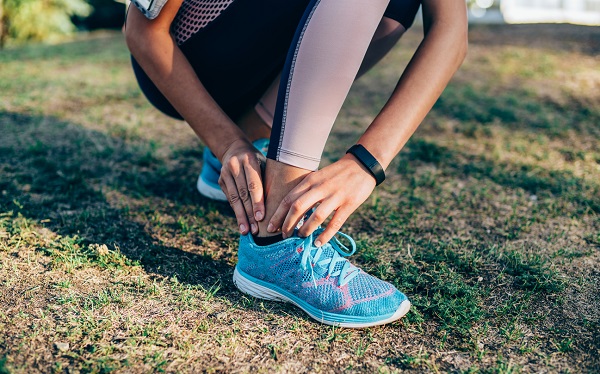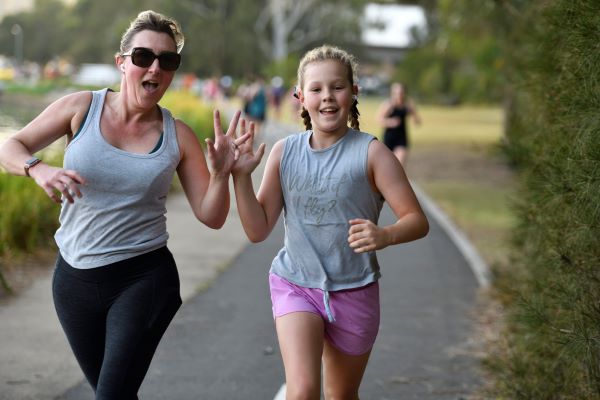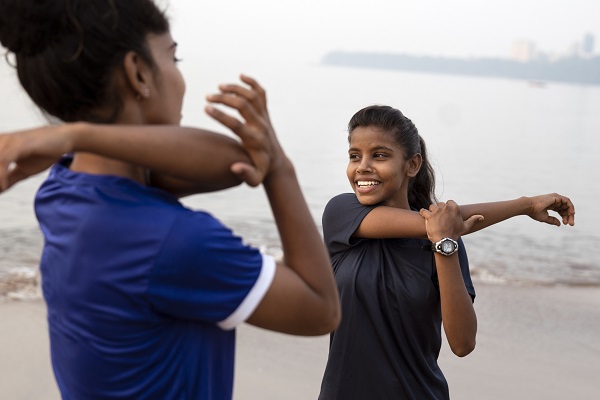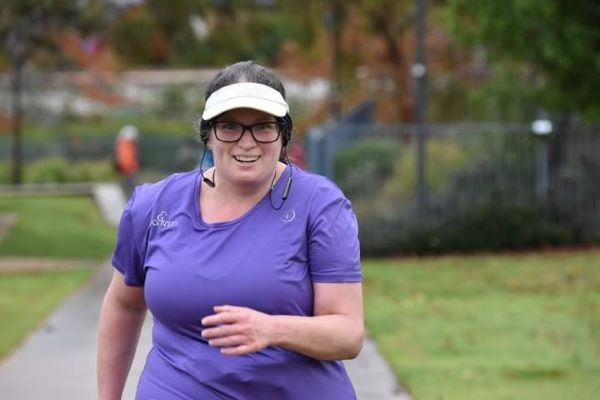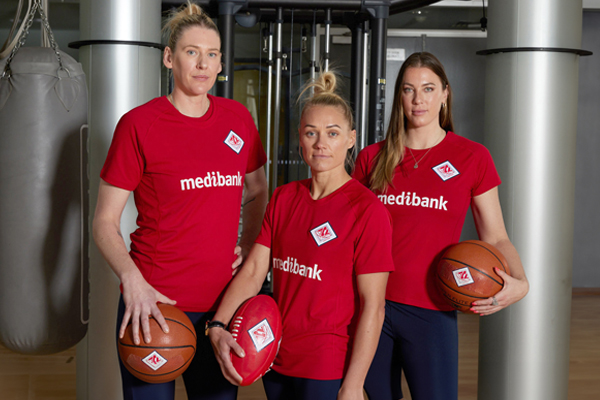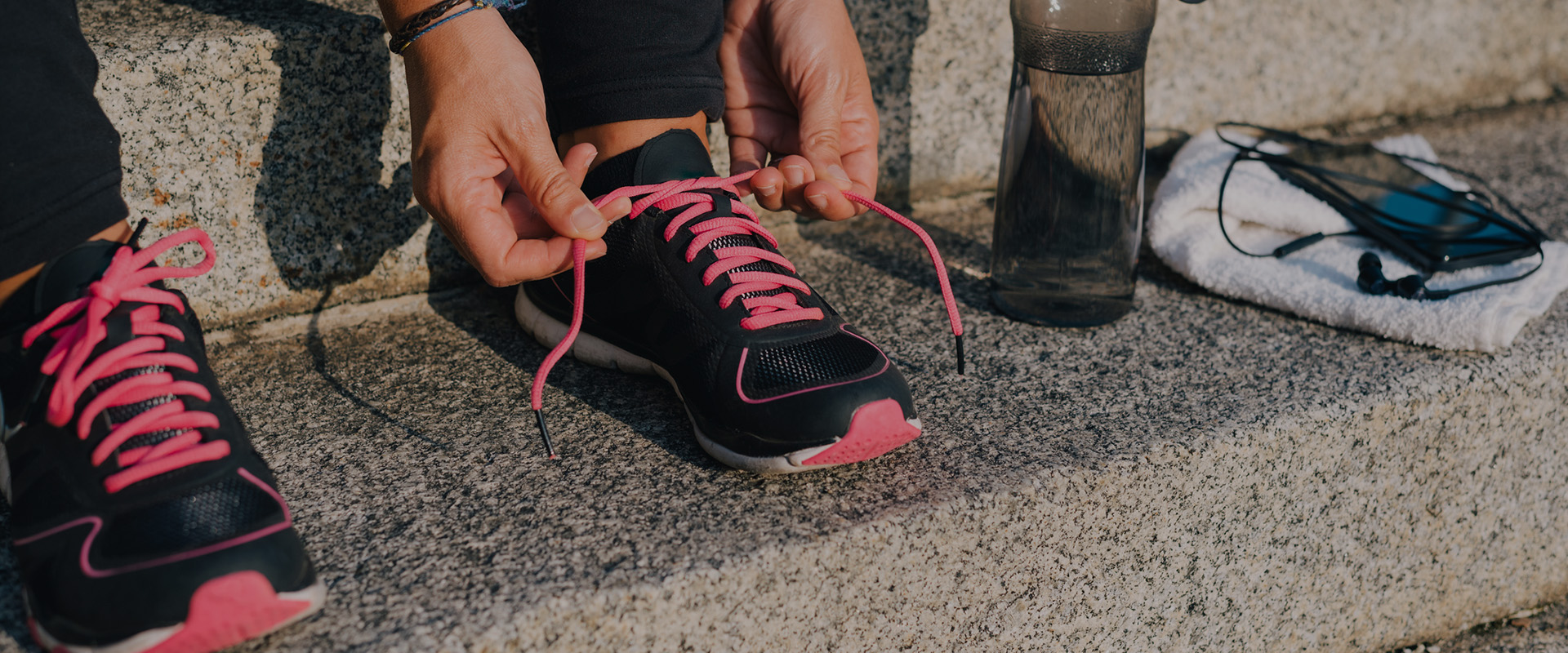-
Being active adds so much to your life. When you get into a rhythm of challenging your body regularly, you can boost your mood and energy, improve your cardio fitness, get stronger and leaner, and feel healthier and more vibrant every day.
CJ, a Master TRX instructor at boutique Melbourne functional training studio Apparatus, says fitness is all about taking a holistic approach, and making your exercise routine works with your lifestyle.
“Holistic can loosely translate into taking everything into account,” he says. “At our studio we encourage clients to look a little deeper and be honest with themselves. That is to understand what their motivations and goals are, how it fits within their current lifestyle and what they are willing do to achieve those goals.”
Here, CJ shares his top tips for getting the most out of your fitness routine.
1. Reframe how you think about exercise
We spend a lot of time being hard on ourselves. In managing busy lifestyles and obligations of this modern age, we neglect ourselves. When stressed, exercise can often be perceived as just one more thing we have to do.
As health and fitness professionals, we try to help you reframe that thought. Not just that exercise is good for you, but that it should be as important as eating and sleeping. Take pleasure in the knowledge that exercise is a way of treating yourself with kindness. And not only that – it will continue to have benefits for you in the future.
2. Try to get moving every day
The perfect weekly fitness formula will vary from person to person, depending on things like your current fitness level and your goals. A good rule of thumb is to be active daily. For moderate physical activities such as brisk walking or dancing, aim for about an hour a day. If you're capable of higher intensity training, then the amount of time could be reduced to around 30 minutes a day.
3. Mix up your workout
A good combination of strength training and cardio will get you results. Actively integrating the core and recruiting more muscles into your movements allows you to perform exercises more effectively and safely, and it burns more calories.
4. Focus on your food
For our general clients I often refer to the 80/20 principle – 80% food and 20% exercise. Watch your portions, eat more fresh foods and fewer processed foods and sugar, stay hydrated, and ensure you’re having enough protein.
The Australian Dietary Guidelines suggest adults consume around 0.75-1.0 g of protein per kilogram of body weight, but the requirements can slightly increase for athletic training. See a health professional for personal recommendations.
"A good combination of strength training and cardio will get you results. Actively integrating the core and recruiting more muscles into your movements allows you to perform exercises more effectively and safely, and it burns more calories."
5. Plan your meals
Meal planning is an excellent way to learn about food and form better eating habits. Having meals prepared ahead of times means you're less likely to grab takeaway during lunch or on the way home for dinner.
Some of my quick go-tos for lunch are salmon sashimi with edamame, an omelette with asparagus or a broccoli salad with currants, almonds and feta. Dinners range from baked chicken with broccolini and mushrooms, a five bean chilli with mushrooms and capsicum or a blanched vegetable stack with steamed Atlantic salmon.
6. Be kind to yourself
It’s easy to fall into trap of rewarding yourself with sugary snacks and undermining your progress – or turning fitness into something negative by being too hard on yourself if you don’t meet your expectations. Find balance and keep working at it from there. What works for you can take trial and error.
7. Find support
Sometimes we cannot do it alone. If friends or family are unable to share your workout routine, find someone who can. The fitness community has many different groups. A good community should make you feel welcome and supported, and give you an opportunity to do the same in return.
8. Educate yourself
Don't take everything you hear for gospel. Sure, prolonged sitting is not good for you, but do you know why it is not good for you? Knowledge is power. Knowing the why behind something can be a good motivating factor to strengthen your resolve when you need it.
9. Make time for rest and recovery
There’s a reason athletes have an off-season. Our body is good at telling us when it needs something, so it’s important to listen. This might mean swapping out your regular session for a less strenuous activity, keeping on top of your stretching, using recovery techniques like foam roller exercises, or making sure you are getting enough sleep.
Find out more about TRX, Pilates and functional training at Apparatus.
9 ways to get more from your workout


Want up to 25% off your gym membership?
Get fit this summer with discounted membership fees at our new fitness partners: Fitness First and Goodlife. Plus, you could earn 500 Live Better points every month.
Available to eligible Medibank members with hospital and extras cover. T&Cs apply.
-
How to walk 10,000 steps
Discover how to easily reach your goal of 10,000 steps daily.
-
Everything you need to know about parkrun
Been wondering what a parkrun looks like? Where do you go? What do you do? How do you sign up? Find out here.
-
Five ways to exercise when on a budget
You don’t need to spend money on gym memberships just to meet your fitness goals. Here are five free ways to stay healthy and active when you’re living on a budget.
-
How parkrun changed my life
Christie Farrow went from being an exercise-phobe to a true blue runner with parkrun.
-
Australia's top female athletes unite on ACL injury
Some of Australia's most talented athletes have joined forces to highlight the unique injury challenges women face.
-
How to create your perfect summer fitness plan
Be inspired by the sunshine and get moving
Subscribe to receive the best from Live Better every week. Healthy recipes, exercise tips and activities, offers and promotions – everything to help you eat, move and feel better.
By clicking sign up I understand and agree to Medibank's privacy policy

